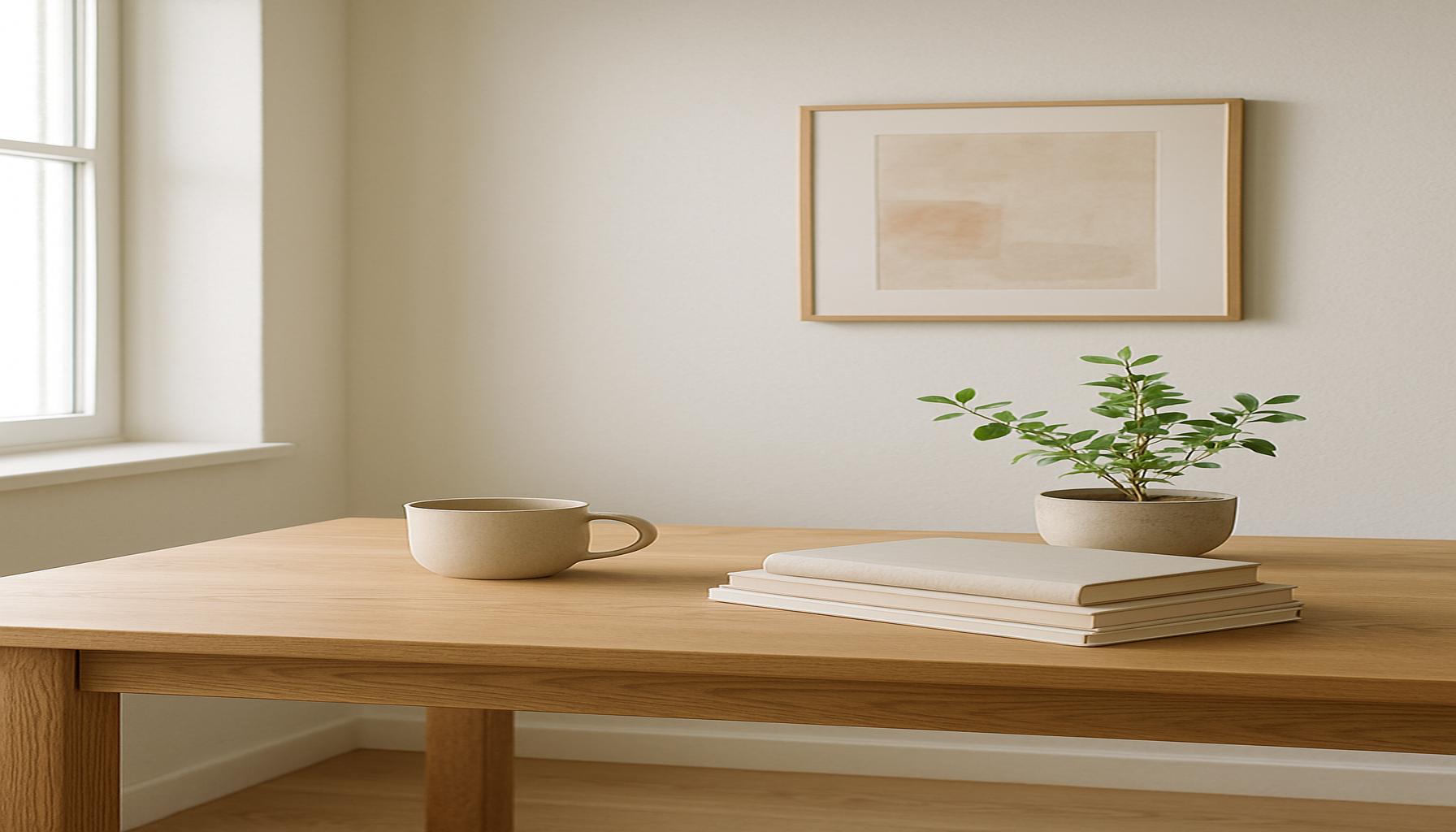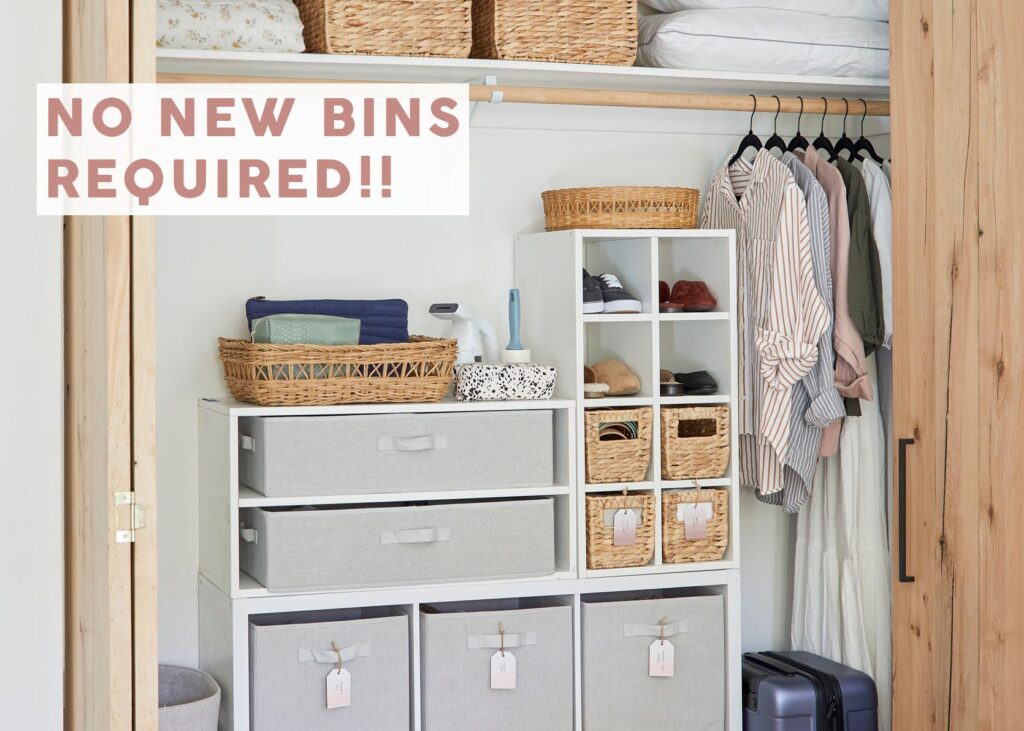Minimal Living: Reducing Clutter in Your Life

Understanding Minimal Living: A Path to Clarity and Satisfaction
In a society increasingly defined by consumerism, where shiny gadgets and fleeting trends dominate our lives, the rise of minimal living serves as a compelling counter-narrative. This lifestyle advocates for simplicity, suggesting that by reducing our belongings and distractions, we open the door to increased clarity, peace of mind, and a more rewarding existence.
The advantages of embracing minimalism are manifold, affecting various aspects of daily life:
- Enhanced Focus: A decluttered environment is conducive to improved concentration. Studies have shown that individuals who work in organized spaces tend to be more productive. For example, consider a writer who reduces desk clutter—doing so can lead to unbroken periods of creativity and concentration as distractions are minimized.
- Decreased Stress: Research indicates that living amidst clutter can create feelings of anxiousness. In contrast, adopting a minimalist lifestyle helps cultivate a tranquil atmosphere. This could involve simple steps such as organizing one’s living space or taking digital decluttering into consideration, like cleaning up that endlessly scrolling inbox.
- Financial Freedom: Minimalism encourages mindful spending. By purchasing fewer items, financial burdens lessen, paving the way for savings. Imagine reallocating funds once spent on unnecessary gadgets toward meaningful experiences, such as travel or educational courses that enhance personal growth.
However, minimalism extends far beyond just decluttering. It encompasses several essential principles:
- Intentionality: It emphasizes making thoughtful choices regarding possessions and how time is utilized. This could mean evaluating both emotional and practical values of items, deciding what truly adds value to life.
- Mindfulness: This principle invites individuals to embrace the moment and cherish the beauty in simplicity, whether it’s enjoying a sunset or relishing a simple meal with loved ones. Mindfulness practices, such as meditation, can complement the minimalist journey by enhancing one’s appreciation for the present.
- Sustainability: Minimalism naturally promotes eco-conscious behaviors. By prioritizing quality over quantity, individuals can make purchasing decisions that are environmentally responsible, such as choosing sustainable brands or local artisans, which fosters a healthier planet.
As the minimalist movement gains traction across the United States, the shift from chaotic accumulation to purposeful living offers a compelling roadmap towards a fulfilling life. Individuals are invited to embark on this journey at their own pace, finding joy in less, and rediscovering what truly matters.
If you are curious about how to initiate a shift toward simplification in your own life, consider starting with small, manageable steps. Whether it’s redesigning a cluttered closet or experimenting with a week of mindful living, every small decision can contribute to this broader philosophy. The result could very well be a more purposeful and enriched existence, a state many are pursuing today.

The Journey Begins: Identifying Clutter and Its Sources
For many individuals across the United States, clutter has become synonymous with modern life. Whether it’s the overflowing garage, the kitchen countertops laden with miscellaneous items, or the endless digital files stored on personal devices, clutter can seep into various aspects of daily existence, often without us even realizing it.
The first step on the path to minimal living involves a keen awareness of what constitutes clutter in each person’s life. Clutter can be broadly categorized into two types: physical clutter and digital clutter.
Physical Clutter: The Tangible Distractions
Physical clutter encompasses everything from clothing and furniture to kitchen gadgets that have long been forgotten. Over time, these items accumulate, creating a chaotic environment that can weigh heavily on one’s mental state. To effectively tackle physical clutter, consider the following strategies:
- Assess Your Belongings: Take a walk through your home and evaluate each item. Ask yourself whether it serves a purpose or brings joy. If not, it may be time to let it go.
- Decluttering Challenges: Engage in 30-day challenges where you remove one item on the first day, two on the second, and so on. This method makes decluttering manageable and transforms it into a daily ritual.
- Zone Clean: Focus on one area at a time. Start small; perhaps a drawer or a portion of a closet. This targeted approach can lead to a greater sense of achievement and motivate further action.
Digital Clutter: The Invisible Weight
In our hyper-connected world, digital clutter can be just as overwhelming as its physical counterpart. Unorganized files, unused apps, and an abundance of emails create an atmosphere of chaos in the digital landscape. To manage digital clutter effectively, consider these steps:
- Inbox Declutter: Aim for inbox zero by unsubscribing from newsletters you no longer read and organizing important messages into designated folders. A streamlined inbox can greatly reduce feelings of overwhelm.
- App Audit: Review the apps on your devices. Uninstall those that are rarely used, as this can free up space and enhance device functionality.
- File Organization: Create a filing system that works for you, whether it’s by project, date, or category. This categorization helps in easily locating necessary documents and maintaining organization.
By addressing both physical and digital clutter, individuals can create a more peaceful environment conducive to mindfulness and productivity. This path to minimalism is ultimately about making space for what truly matters, whether it is time spent with loved ones, pursuing hobbies, or simply enjoying moments of quiet reflection.
As you embark on this decluttering journey, remember that patience is key. The process of reducing clutter in your life is not just about getting rid of things; it’s about cultivating a lifestyle that honors your values and brings satisfaction. With small, deliberate steps, anyone can begin to turn their chaotic surroundings into a sanctuary of simplicity.
| Advantages | Description |
|---|---|
| Enhanced Focus | By reducing distractions, a minimalist lifestyle allows for improved concentration on essential tasks and goals. |
| Financial Savings | Embracing minimalism can reduce unnecessary spending and encourage smarter financial decisions, allocating funds toward meaningful experiences. |
Minimal living not only declutters your physical space but also brings about a transformative change in your mental well-being. Studies have shown that individuals who adopt a minimalist approach often report lower stress levels and higher satisfaction, as they are less burdened by excess belongings and commitments. The principles of minimalism encourage thoughtful consumption, leading to a more intentional lifestyle. Additionally, exploring the *minimal living movement* can reveal practices that align closely with sustainable living, as individuals often choose quality over quantity. This mindset shift fosters a greater appreciation for the things we own and prompts us to make conscious decisions that benefit both ourselves and the environment.
Simplifying Your Lifestyle: Practical Steps Towards Minimalism
Once you’ve identified the sources and types of clutter in your life, the next phase in your journey towards minimal living involves practical and actionable steps to streamline your lifestyle. These strategies require a thoughtful approach and can pave the way for a more organized, fulfilling existence.
Establishing a Decluttering Routine
To create lasting change, it’s essential to integrate decluttering into your regular routine. This can be as simple as setting aside a few hours each week exclusively for decluttering purposes. Here are some techniques to consider:
- Weekly Review: Allocate a specific day weekly to reevaluate your belongings. During this time, scrutinize items that may have accumulated or cluttered your space since the last review.
- One In, One Out Rule: Adopt the philosophy that for every new item you bring into your home, one must be removed. This principle not only emphasizes the importance of intentional purchases but also helps maintain current levels of clutter.
- Set Monthly Goals: Empower yourself with more extensive projects by setting specific goals each month, whether it’s decluttering your entire wardrobe or clearing out the garage. Achieving these goals can lead to a more significant sense of accomplishment.
Mindful Consumption: Redefining Value
In the quest for minimal living, understanding your consumption patterns is crucial. Mindful consumption encourages individuals to think critically about the items they purchase and bring into their homes. Here are ways to practice this:
- Identify Triggers: Pay attention to what prompts you to shop. Are you engaging in retail therapy during stressful times, or are you buying things out of habit? Recognizing these triggers can help you resist unnecessary purchases.
- Quality Over Quantity: Shift your focus from acquiring multiple low-quality items to investing in fewer, higher-quality pieces that truly add value to your life.
- Participate in Local Swap Events: Engage in community events where individuals swap items they no longer need. This allows you to refresh your belongings without the need for purchasing new items.
Creating a Clutter-Free Space
The physical appearance of your living space significantly influences your well-being. Here are suggestions for cultivating a tranquil, clutter-free environment:
- Adopt Multi-Functional Furniture: Consider investing in furniture that serves dual purposes, such as a storage ottoman or a convertible sofa. This can significantly reduce the number of items you own while maximizing utility.
- Minimalistic Decor: Embrace a style that celebrates simplicity. Opt for decor that reflects your personality without overwhelming space, and be conscious of the number of decorative pieces you display.
- Regular Maintenance: Once your space is decluttered, perform regular maintenance to prevent the return of clutter. Allocate a specific spot for each item and make it a habit to return things to their designated places promptly.
Ultimately, achieving minimal living is a dynamic process that requires continuous reflection and adjustments. It is about finding balance—between the items we keep and the space we create—thus allowing us to experience a more enriched life. Each step taken towards a less cluttered existence can enhance not only our physical surroundings but also our mental clarity and emotional wellness.
Embracing Minimal Living: The Path to Clarity and Contentment
In conclusion, the journey towards minimal living is not merely about shedding excess belongings, but rather about fostering a mindset that prioritizes value and intentionality. As we navigate through life, it can be all too easy to accumulate unnecessary items that weigh down our physical and emotional spaces. However, by adopting strategies such as regular decluttering, mindful consumption, and creating multifunctional environments, we can reclaim our homes—and our minds.
Moreover, minimalism encourages us to make thoughtful decisions about what we allow into our lives, crafting an atmosphere that not only reflects our true selves but also enhances our overall well-being. Each small step you take toward reducing clutter can have a profound ripple effect, improving mental clarity, reducing stress, and ultimately leading to a more fulfilling existence. Whether it’s committing to the One In, One Out Rule or participating in community swap events, every action contributes to a richer quality of life.
As you embark on your own minimal living journey, keep in mind that this is a continuous process—one that requires patience, commitment, and an open mind. The transformation to a clutter-free lifestyle is a deeply personal experience, allowing you to discover what truly brings you joy and meaning. So take the plunge, embrace simplicity, and witness how reducing clutter can beautifully reshape not just your living space, but your entire outlook on life.
Related posts:
The Benefits of Minimal Living: Reducing Stress Through Simplicity
Transforming Spaces: Minimal Living Ideas for Small Apartments
How Minimalism Can Transform Your Personal Organization Routine
Minimalism and Sustainability: Living with Less for a Better Future
Practical Tips for Adopting a Minimalist and Organized Lifestyle
Transform Your Life with Minimal Living 5 Steps to Get Started

Linda Carter is a writer and organization expert specializing in minimalism and personal organization. With extensive experience helping individuals create clutter-free, functional spaces and adopt mindful habits, Linda shares her knowledge on our platform. Her goal is to empower readers with practical advice and strategies to simplify their lives, stay organized, and achieve a sense of calm and balance in their daily routines.